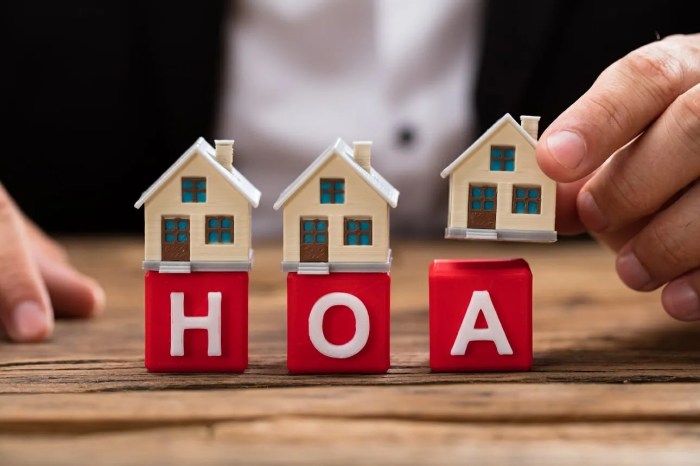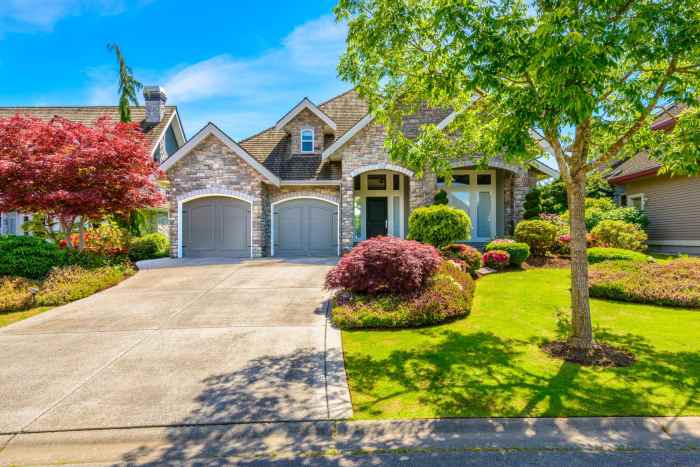The Essential Role of Property Management for Homeowners Associations
Delving into the realm of property management for homeowners associations, one uncovers a critical aspect that underpins the smooth operation and value enhancement of residential communities.
As we navigate through the various responsibilities, communication strategies, and technological advancements in this field, a comprehensive understanding emerges, shedding light on the pivotal role property management plays in fostering thriving and harmonious neighborhoods.
Importance of Property Management for Homeowners Associations
Property management plays a crucial role in ensuring the smooth functioning of homeowners associations. Effective property management not only enhances the overall quality of life for residents but also contributes to the long-term value and sustainability of the community.
Enhancing Property Values
- Regular maintenance and upkeep of common areas and facilities can significantly increase property values within homeowners associations.
- Enforcing rules and regulations related to property maintenance and aesthetics can prevent devaluation of properties within the community.
- Investing in improvements and renovations under the guidance of property management professionals can attract potential buyers and increase property values over time.
Community Maintenance and Compliance
- Property management ensures that common areas are well-maintained, creating a pleasant and attractive environment for residents and visitors.
- Enforcement of community guidelines and regulations by property managers helps maintain a cohesive and harmonious living environment within the association.
- Property management oversees important tasks such as landscaping, snow removal, waste management, and building repairs to ensure the community remains in compliance with local regulations.
Responsibilities of Property Managers for Homeowners Associations
Property managers play a crucial role in ensuring the smooth operation and maintenance of homeowners associations. They handle a variety of tasks and duties to keep the community running efficiently.
Financial Management Responsibilities
Property managers are responsible for budgeting, collecting dues, and managing expenses on behalf of the homeowners association. They create annual budgets, monitor financial transactions, and ensure that all expenses are within the approved budget. Property managers also collect dues from homeowners, handle delinquent accounts, and provide financial reports to the association’s board.
Maintenance Issues and Emergencies
Property managers oversee maintenance issues within the community, ensuring that common areas are well-maintained and repairs are promptly addressed. In case of emergencies such as plumbing leaks or electrical issues, property managers coordinate with maintenance staff or contractors to resolve the problem quickly.
They also schedule regular inspections to identify maintenance needs proactively.
Vendor Management
Property managers handle vendor management for the association, which includes obtaining bids for services, negotiating contracts, and supervising vendors’ work. They ensure that vendors comply with the terms of their contracts, deliver quality services, and meet deadlines. Property managers also coordinate with vendors for projects such as landscaping, security, or renovations to enhance the community.
Communication Strategies in Property Management for Homeowners Associations

Clear and effective communication is crucial in property management for homeowners associations to ensure a harmonious and well-informed community. Property managers play a key role in fostering an environment of transparency, trust, and cooperation among residents.
Importance of Clear Communication
Clear communication between property managers and homeowners is essential for maintaining a positive relationship and addressing any issues or concerns promptly. By keeping residents informed about association news, events, and changes in policies, property managers can prevent misunderstandings and conflicts within the community.
Best Practices for Keeping Residents Informed
- Regularly update residents through newsletters, emails, or community meetings to share important information and upcoming events.
- Utilize online portals or social media platforms to provide instant updates and engage with homeowners on a regular basis.
- Establish open lines of communication where residents can easily reach out with questions or feedback.
- Create a transparent process for sharing financial reports, maintenance schedules, and any decisions made by the homeowners association.
Addressing and Resolving Conflicts
When conflicts or issues arise within the community, property managers must act as mediators to facilitate resolution and maintain a peaceful environment. Effective strategies include:
- Listening to all parties involved and understanding their perspectives before proposing solutions.
- Communicating clearly and setting expectations for the resolution process.
- Collaborating with homeowners to find mutually agreeable solutions and compromises.
- Maintaining confidentiality when handling sensitive matters to protect the privacy of residents.
Technology and Tools for Efficient Property Management

In today’s digital age, property managers have a variety of modern technologies and software tools at their disposal to streamline operations and enhance efficiency. These tools not only help in managing day-to-day tasks more effectively but also improve communication, financial transactions, and maintenance requests within homeowners associations.
Online Portals for Communication, Financial Transactions, and Maintenance Requests
Online portals have revolutionized the way property managers interact with homeowners and vendors. These platforms provide a centralized hub for communication, allowing for quick and efficient dissemination of important information. Residents can easily submit maintenance requests, pay association fees, and access important documents through these portals.
Additionally, property managers can track financial transactions in real-time, ensuring transparency and accountability.
Smart Home Technology for Improved Security, Energy Efficiency, and Convenience
The adoption of smart home technology within homeowners associations can significantly enhance security, energy efficiency, and overall convenience for residents. Smart devices such as video doorbells, smart locks, and security cameras provide an extra layer of protection, giving homeowners peace of mind.
Moreover, smart thermostats, lighting systems, and appliances help in reducing energy consumption, leading to cost savings and a more sustainable living environment. The convenience of controlling various aspects of the home remotely through a smartphone or voice commands adds to the overall appeal of smart home technology within homeowners associations.
Final Review

In conclusion, property management stands as a cornerstone in the foundation of homeowners associations, bridging the gap between efficient operations and resident satisfaction. By embracing proactive communication, leveraging modern tools, and upholding maintenance standards, property managers pave the way for a vibrant community that residents can proudly call home.
Top FAQs
How does property management benefit homeowners associations?
Property management ensures proper maintenance, enhances property values, and facilitates compliance with regulations, creating a conducive living environment for residents.
What financial tasks do property managers handle?
Property managers oversee budgeting, collect dues, manage expenses, and ensure financial stability within homeowners associations.
How can property managers effectively resolve conflicts?
By promoting clear communication, addressing issues promptly, and implementing conflict resolution strategies, property managers can navigate and resolve conflicts within the community.




